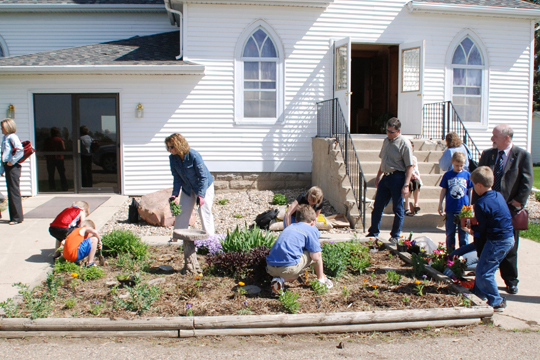The road to church health begins with self-evaluation
 The goal is that each NWC church become healthy and missional, for it is through the local church that God accomplishes His purposes.
The goal is that each NWC church become healthy and missional, for it is through the local church that God accomplishes His purposes.
Therefore, NWC staff provides churches with assessment workshops along with recommendations, arising from the process of self-evaluation.
If you’re ready to begin the conversation, check out the resources below or contact the NWC office to get started.
Veritas
 Tools available through the NWC include the Veritas Workshops for a cluster of churches or within a local church context. Veritas means “truth” in Latin. Jesus said, “You shall know the truth and the truth will set you free” (John 8:32). As churches learn to think of themselves with sober judgment, this new level of awareness often leads to a renewed sensed of vision and purpose (Romans 12:3).
Tools available through the NWC include the Veritas Workshops for a cluster of churches or within a local church context. Veritas means “truth” in Latin. Jesus said, “You shall know the truth and the truth will set you free” (John 8:32). As churches learn to think of themselves with sober judgment, this new level of awareness often leads to a renewed sensed of vision and purpose (Romans 12:3).
In this workshop, participants will become acquainted with four types of churches as they relate to differing levels of missional vitality. Throughout the workshop, participants will be provided a common language and a concrete structure in order to frame ongoing “balcony” conversations on the local level.
The desire of NWC staff is to come alongside conference churches and help them to confront their current realities with faith, honesty, hope and courage; believing that the answers are not in the information presented, but in the conversations you have about this information as the Holy Spirit leads and guides.
If you would like to find out more about Veritas, please contact Jon Kramka by email or call the NWC office.
Behavioral Covenant
NWC staff are also available to assist in the development of a Behavioral Covenant as a means to foster conversations within the church that are civil, compassionate, and Christ-honoring.
A Definition – A Behavioral Covenant is a written document developed by leaders, agreed to and owned by its creators and practiced on a daily basis as a spiritual discipline. The Covenant answers the question, “How will we behave (how will we live together?) when we don’t understand each other and when we don’t agree?”
Gil Rendle, Behavioral Covenants in Congregations
An Example – (from Colossians 3:12-17; 1 Thessalonians 5:12-26)
At ________ Covenant Church…
- We seek to build each other up and not tear down.
- We respect and honor the office of pastor and other lay leaders.
- We seek to communicate clearly and completely.
- We offer our opinions with charity and humility.
- We make positive investments in the lives of one another.
- We seek to discover what is best for our church as a whole, not what may be best for us or for some small group in the church.
- We accept disagreement, conflict and evaluation as normal and natural.
